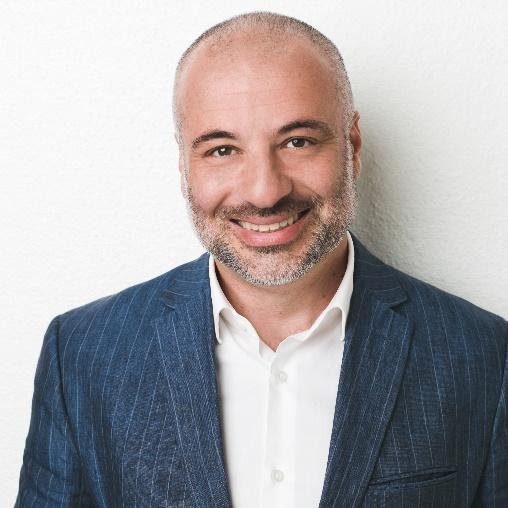As COVID-19 vaccines roll off production lines and signs of economic recovery emerge, leaders are increasingly seeking opportunities to grow their businesses. But that will be easier said than done. Market volatility is here to stay, while many organisations have downsized and slashed budgets. To achieve growth, leaders must simultaneously thrive in uncertainty and do more with less.
This will require a great deal of resilience on the part of managers and their people, according to Professor Alex Christou, Managing Director at Thrive Global Asia Pacific and faculty member at Monash University. “Resilience is the quality that allows us to overcome challenges, obstacles, hardships and adversity – instead of being defeated by them. In our living memory, there has never been a greater need for resilience,” he says.
Thrive Global is a leading corporate behaviour change tech company, founded by the Huffington Post‘s Arianna Huffington in 2016. The organisation has collaborated with Stanford Medicine and others to help the likes of Accenture, Microsoft and SAP build corporate resilience. “An organisation is only as resilient as its workforce,” says Professor Christou, who has been working with HR leaders for more than 20 years. He points to wellness programs as the glue that can bind an organisation and make it stronger.
“We’ve seen organisations that are quite sophisticated in their approach, measuring the outcomes of their wellbeing programs. And what we’ve seen as a result is greater engagement and productivity, as well as higher retention and attraction of talent.”
Practical ways to boost workforce resilience and wellness
Christou’s combination of research and ‘hands on’ experience has given him a rare insight into exactly what works – and what doesn’t – when it comes to workplace wellbeing programs. The best intentions do not necessarily lead to the best results. To actually achieve better wellness outcomes, Christou recommends leaders focus on eight specific areas.
1. Show vulnerability
The COVID-19 pandemic has elevated mental health on corporate agendas. But last year, a global survey by Robert Walters found about half of employees still think their organisations’ leaders need a better understanding of mental health and wellbeing. Leaders can set the tone by talking freely about how they approach their own mental wellness, according to Christou.
“First and foremost, we need our leaders to be vulnerable. Leaders sharing their experiences is a surefire way to help break any stigma around mental health. We need leaders to be open and brutally honest about their own mental health struggles. And that just simply opens a door for employees to also feel comfortable talking with them about their mental health challenges.”
According to mental health organisation Beyond Blue, having conversations about issues such as anxiety and depression helps ensure people feel less alone, and more understood, which assists in their recovery.
2. Role model
Many leaders talk about healthy behaviours but not all of them actually walk the talk. This sends a mixed signal to colleagues. For example, if a manager tells colleagues to prioritise their mental wellness but then routinely works 12-hour days, the evidence undermines the message. If managers don’t prioritise self-care and set boundaries, their people are less likely to do so. But happily, the reverse is also true, according to Christou.
“As a leader, share the fact that you’re taking a walk in the middle of the day; there’s nothing wrong with that. Share the fact that you’re leaving work earlier to spend time with your family. Or simply taking a day off so that you don’t burnout. These are the kinds of role modelling behaviors that send a positive signal to colleagues.”
First and foremost, we need our leaders to be vulnerable. Leaders sharing their experience is a surefire way to help break any stigma around mental health.
3. Connect
Compassion is one of the attributes that has become increasingly important for leaders during the pandemic. That requires the ability – and the opportunity – for leaders to listen to their people.
“Build a culture of connection through regular check-ins,” suggests Christou. “Checking in with each of your direct reports, on a regular basis, is more critical than ever. With people working remotely, it can be even harder to notice if someone is struggling and needs help. So, it’s important that it goes beyond just simply asking colleagues, ‘How are you?’ I encourage leaders to ask specific questions about what support their people actually need and listen carefully. If the employee chooses to open up, the leader must listen carefully. And they may not always have the solution, but what they can always do is exercise compassion, regardless of the circumstances.”
4. Don’t assume
The past 15 months has seen dramatic changes in the needs of different teams and individuals, and more change is inevitable. Managers and leaders can’t solve problems unless they know about them in the first place. So, it’s important they don’t make assumptions about what colleagues need, or what is causing stress for colleagues. If managers know how their people’s needs are changing, then they can adapt. Last year, for example, most organisations provided greater flexibility for employees tasked with homeschooling responsibilities. In many cases, those flexible arrangements yielded better productivity than before.
“The other important thing with flexibility is that you need to start from a position of trust,” says Christou. “Some leaders still have this old mindset that, ‘If I can’t see you, I can’t manage you’. But that’s not the case if you start from a position of trust with each of your employees. After all, that’s why you hired them in the first place.”
5. Communicate with clarity
Managers should do all they can to minimise unnecessary stress for their workforce. Gaps in communication can be filled by speculation and doubt, so it’s vital that leaders commit to keeping people informed across all changes that may be occurring in the organisation. This includes being clear about expectations and top priorities, as well as acknowledging what tasks can wait or be postponed. These issues are explored in IML ANZ’s Masterclass entitled Communicate with
Clarity and Intent.
Christou adds: “Leaders should also ensure their team is aware of available mental health resources and encourage them to use them. Be aware that shame and stigma may actually prevent many employees from using the mental health benefits that organisations extend to them. So do what you can to try to normalise the use of those services.”

6. Focus on prevention
The core of any good wellbeing and resilience program is that it has to be sustainable. That requires leaders to be proactive as well as reactive about health. “Now more than ever, organisations should be prioritising preventative workplace mental health training for leaders, managers and everyone in the workforce,” recommends Christou.
“Traditionally, organisations put great investment in Employee Assistance Programs and these are important – but it’s sometimes too late by the time someone needs to access those. We want organisations to move upstream into the prevention space, before problems become acute for individuals.”
7. Modify policies and practices
In order to reduce stress on everyone in the organisation, employers should respond to the changing environment by aiming to be as generous and flexible as possible when updating the policies and practices. “An example could be that you may need to take a closer look at your rules and norms around flexible hours, paid time off, email and other communications, and paid and unpaid leave,” suggests Christou.
The guiding principle should be that all policies and practices exist to get the best out of people. Rules should therefore be regularly reviewed to ensure they reflect current circumstances and are fit for purpose.
8. Track progress
Having made an investment in an organisation’s wellness program, leaders naturally need to know what the outcomes are. A simple, regular pulse survey can help understand how people are doing over time, with the results used to inform new initiatives to support teams and address issues.
More sophisticated measurement tools can shed further light on progress and improvement opportunities. Many organisations have a dashboard for profit and loss, customer experience, and other key performance indicators. Thrive Global has now created a mental resilience dashboard. “This takes various data feeds to effectively show leaders which segments of their employee population are at risk of burnout,” explains Christou. “It draws on data that’s generated through assessments, surveys, employee interaction and engagement with what we call a Thrive Platform or an app. It also takes in data from the organisation [e.g. staff turnover, productivity statistics, time spent in meetings, etc.] and third-parties [e.g. phone data about health and lifestyle factors such as the number of daily steps taken, quality of sleep, screen time, heart rate, etc.]”
All this data is collected, analysed and aggregated (to ensure individual anonymity and meet privacy regulations) producing a mental resilience score and dashboard that senior leaders in an organisation can monitor and act upon accordingly.
A powerful combination and a powerful message
In Christou’s experience, leaders who follow these eight practical steps are much more likely to equip their people with resilience. And that’s what can help achieve the elusive growth that so many organisations are striving for. Moreover, says Christou, these leaders will be sending out a timely message to their workforce: “These organisations are clearly putting their hand up and making a very public and bold statement: ‘We care for our people’. And isn’t that what people need to hear right now? That their employer cares.”
Mental health support
If you or anyone you know needs support call Lifeline on 131 114 (Australia) or 0800 543 354 (New Zealand).



